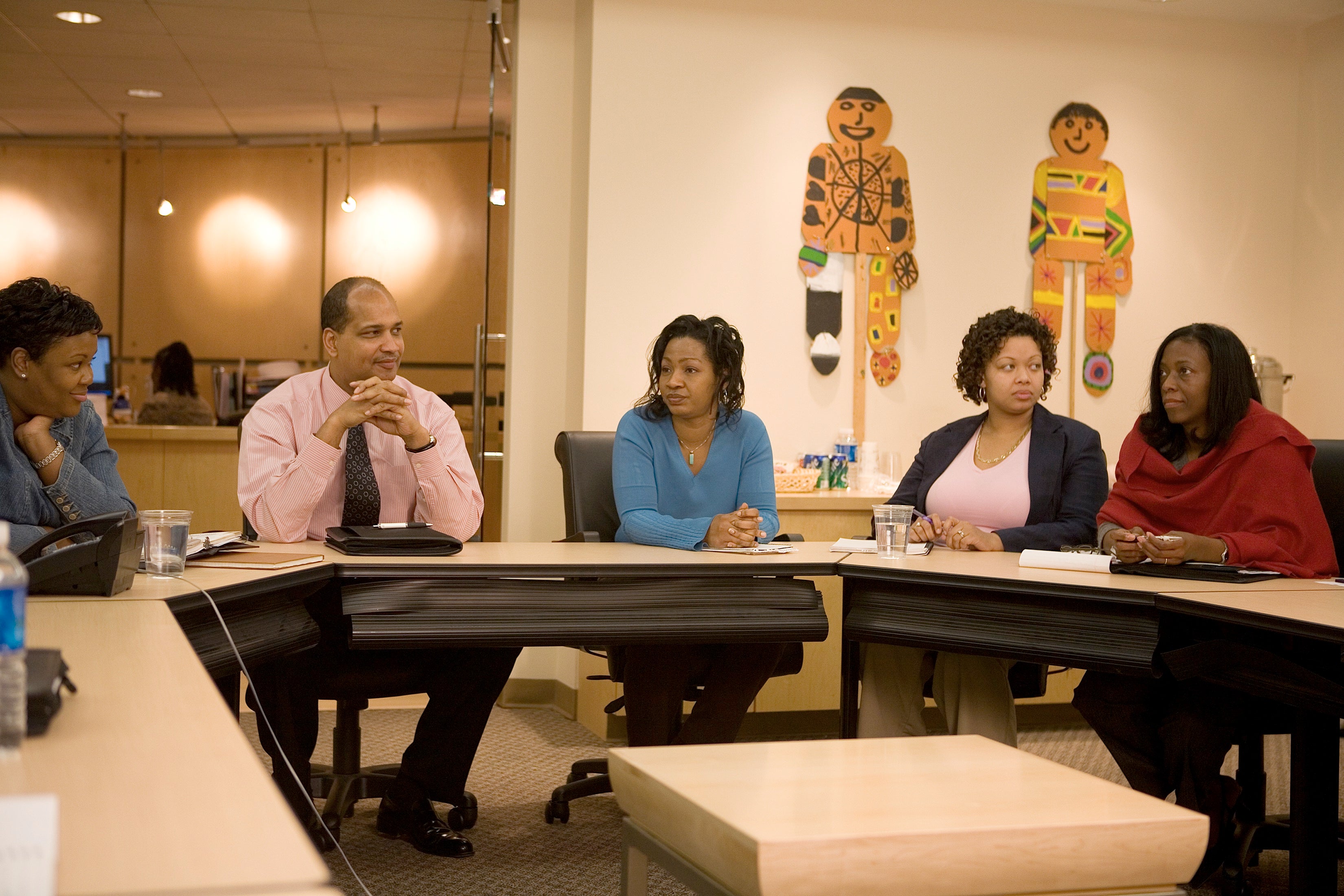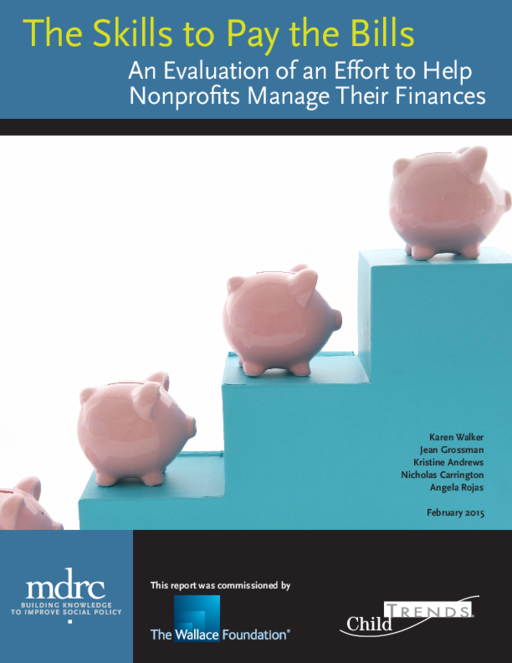Breadcrumb
- Wallace
- Reports
- The Skills To Pay The Bills An E...
The Skills to Pay the Bills
An Evaluation of an Effort to Help Nonprofits Manage Their Finances

- Author(s)
- Karen Walker, Jean Grossman, Kristine Andrews, Nicholas Carrington, and Angela Rojas
- Publisher(s)
- MDRC and Child Trends
Summary
How we did this
The four-year study relied on information from interviews with CEOs and CFOs, conducted every 9 to 12 months for four years, annual visits to a selection of the organizations, and document reviews.
What forms of support do nonprofits need to strengthen their ability to manage their resources? What type of time commitment does this require from the organization? From consultants? What types of changes need to be made to funder practices, and how might those changes be achieved?
This study sought to answer these and other questions. It examines a Wallace Foundation-sponsored initiative aimed at improving the financial management skills and practices of 25 Chicago afterschool providers through training and coaching. The endeavor grew out of concern that even successful not-for-profits in the afterschool (and other) sectors face financial management challenges that can affect their work.
Fiscal Management Associates, a consulting firm specializing in financial management for nonprofits, offered learning and other opportunities to participants in the Strengthening Financial Management in Out-of-School Time initiative. From 2009 to 2013, it provided the participants with access to peer networking. It also provided each organization with one of two models of consulting and training:
- Intensive customized training
- Less costly group training and coaching.
Key Findings
- Both models produced long-lasting improvements. The financial management practices of nearly all of the participating organizations improved over the course of the initiative. Meaningful changes were seen in a range of areas: improved financial skills, better computer systems, more useful internal financial reports and procedures, and more.
- Better financial practices led to better program planning and management and to improved organizational stability.
- Multiyear professional and organizational support combined with funding to purchase new financial software and to defray some of the cost of staff time helped organizations achieve long-lasting change.
- To succeed in achieving the aims of strong financial management, an organization’s leaders needed to be motivated to change from the outset.
- The financial practices of organizations receiving the group learning model significantly improved, though more slowly and not quite as much as those receiving the customized learning model. This indicates that the less expensive approach was a cost-effective option.
Reforming Funding Practices
The second prong of the initiative focused on reforming funding practices. A Chicago-based organization, the Donors Forum, was selected to work with funders, state and city policymakers and officials, and organizations serving young people. Its aim was to identify barriers to effective financial management. It also aimed to set priorities among the group, develop principles to guide decisions, develop and implement practical solutions to improve the way funders manage contracts, and to build momentum for wider reforms in Illinois.
This advocacy effort met with mixed results. The state created a repository that permitted nonprofits to submit standard financial information annually instead of several times each year. However, the biggest challenge nonprofits faced—late payments from the state—was not addressed because of an ongoing state budget crisis in Illinois.

Organizations can strengthen their financial practices if they put in the time and make needed investments. Funders who want to build the core capabilities of an organization or sector now have a blueprint for effective work.
Key Takeaways
- An effort to train 25 afterschool nonprofits in financial management skills succeeded in helping all but two strengthen their financial practices.
- The organizations' improvements persisted after training ended. This also led to better program planning and management and to improved organizational stability.
- The initiative demonstrated that with a concerted effort, it is possible to achieve significant and lasting improvements in financial management.
- The full cost of recruiting new financial staff members, buying software, paying for associated training, and covering staff time was an estimated $70,000 to $110,000 per organization.

